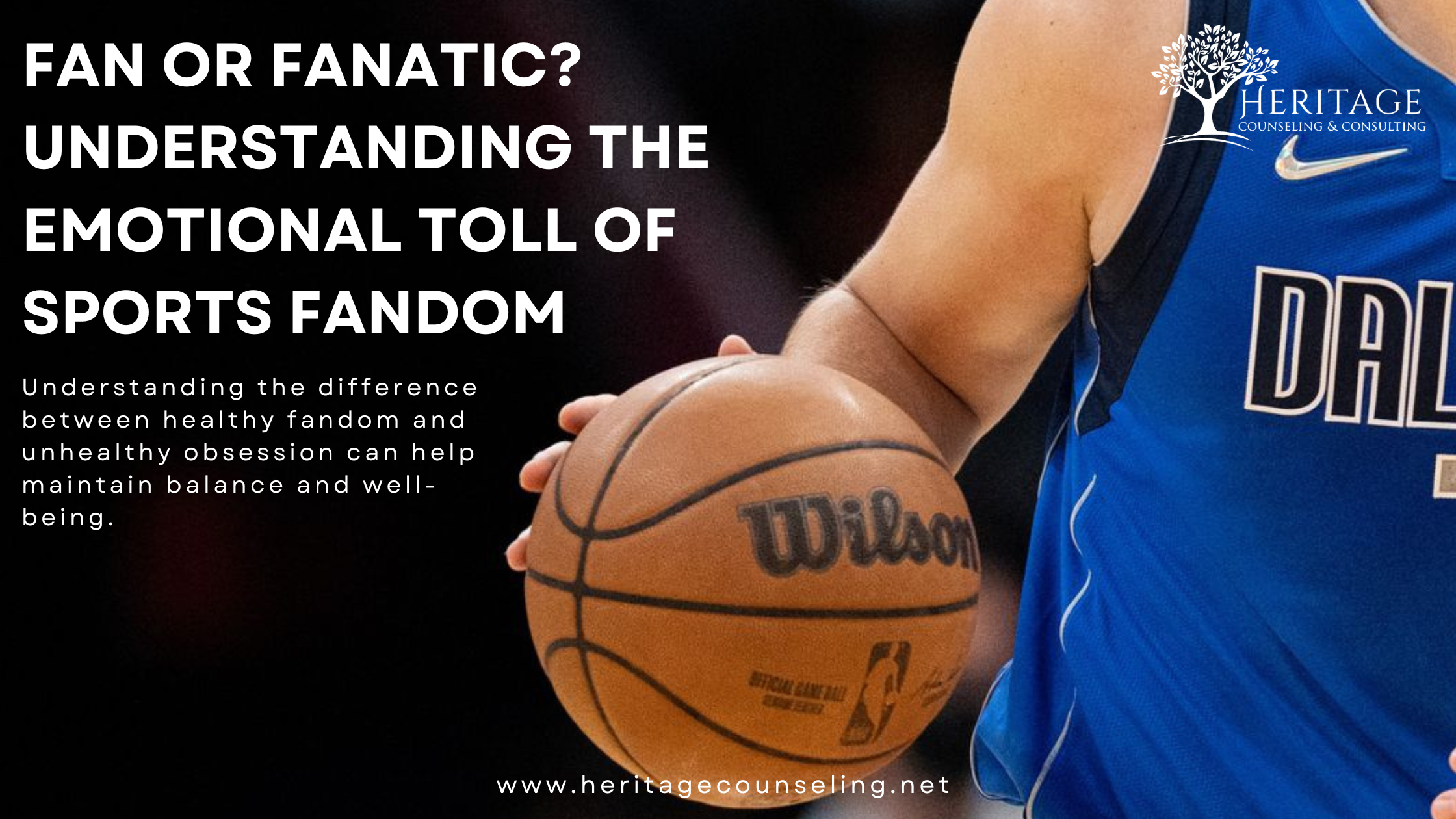Sports fandom is an integral part of many people’s lives, offering excitement, a sense of belonging, and emotional highs. However, when enthusiasm for a team turns into obsession, it can take a toll on mental health. From the recent Luka Dončić trade to your team losing the Super Bowl or World Series, passionate fans often experience a rollercoaster of emotions. Understanding the difference between healthy fandom and unhealthy obsession can help maintain balance and well-being.
The Psychological Impact of Sports Fandom
Sports fandom provides a sense of belonging and identity, offering fans a shared experience that fosters community and camaraderie. Watching a game can trigger the release of dopamine, creating excitement and emotional highs when a team performs well. An emotional attachment to a team can also lead to deep disappointment and stress when expectations are not met. Some fans experience physiological responses similar to the athletes themselves, such as increased heart rate and adrenaline surges during intense moments.
For some, sports fandom becomes a central part of their identity. This connection can be positive, but it may also contribute to feelings of loss or frustration when a team struggles. Events such as a star player's unexpected trade—like Luka Dončić’s recent move to the Los Angeles Lakers—can feel like a personal betrayal to dedicated fans. Similarly, losing a major championship, such as the Super Bowl or World Series, can lead to sadness, anxiety, and even depressive symptoms for those heavily invested in their team’s success.
Healthy vs. Unhealthy Fandom
Healthy sports fandom can be a source of joy, connection, and excitement. It allows fans to engage with their favorite teams, celebrate victories, and share in the communal experience of belonging. When fandom crosses into obsession, it can lead to emotional distress, relationship conflicts, and even negative impacts on mental health. Understanding the distinction between passion and overinvestment is key to maintaining a balanced and positive relationship with sports.
Some key distinctions between healthy and unhealthy fandom can include:
Healthy Fandom:
Enjoying the games and the overall experience, win or lose
Engaging in friendly discussions without hostility
Maintaining a balanced life outside of sports
Accepting outcomes with perspective
Unhealthy Fandom:
Experiencing severe mood swings based on game results
Engaging in aggressive or destructive behavior after losses
Neglecting responsibilities due to excessive sports consumption
Feeling personally attacked or devastated by trades and team decisions
Real-World Examples: Luka Dončić, Championship Losses, and More
The recent Luka Dončić trade to the Los Angeles Lakers sent shockwaves through the NBA community, leaving many Mavericks fans feeling betrayed or distressed. Similarly, when a favorite team loses a championship—like the Super Bowl or World Series—some fans take it personally, experiencing grief-like symptoms. These reactions highlight how deeply sports can affect mental health, making it essential to find coping strategies.
Tips for Maintaining Balance as a Sports Fan
To prevent sports fandom from becoming overwhelming, it’s essential to maintain perspective and set boundaries. Here are some strategies to stay balanced:
Set Emotional Boundaries: Enjoy the highs, but don’t let losses define your mood.
Engage in Other Hobbies: Diversify your interests to prevent sports from consuming your life.
Maintain Perspective: Remember that trades and losses are part of the game.
Seek Support: Talk to other fans, friends, or even a therapist if emotions become overwhelming.
Conclusion
Passion for sports is fun and engaging, but when it begins to affect your mental health, it’s important to take a step back and reassess. Heritage Counseling offers therapy and guidance to manage anxiety, emotional regulation, and stress related to sports fandom. If you find yourself struggling with excessive frustration, mood swings, or feelings of depression due to sports outcomes, don’t hesitate to reach out. Our team of professionals can provide support, coping strategies, and guidance to ensure that your passion for sports remains a positive aspect of your life. Reach out today at 214-363-2345 to learn more or to schedule an appointment.

